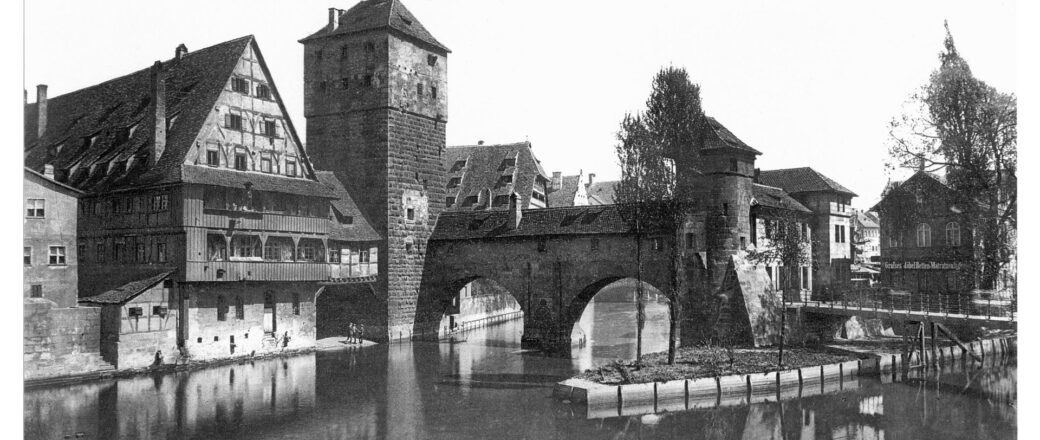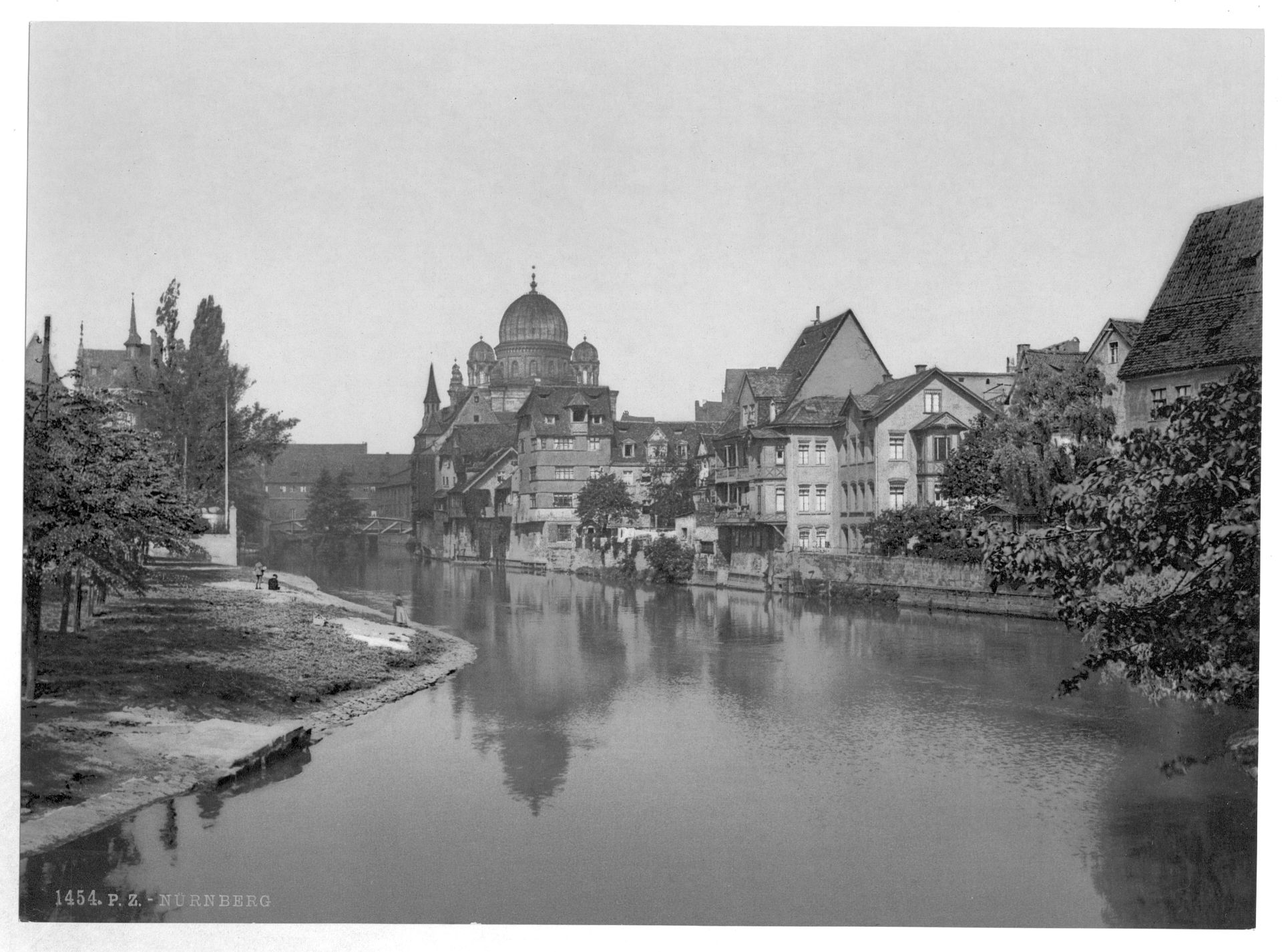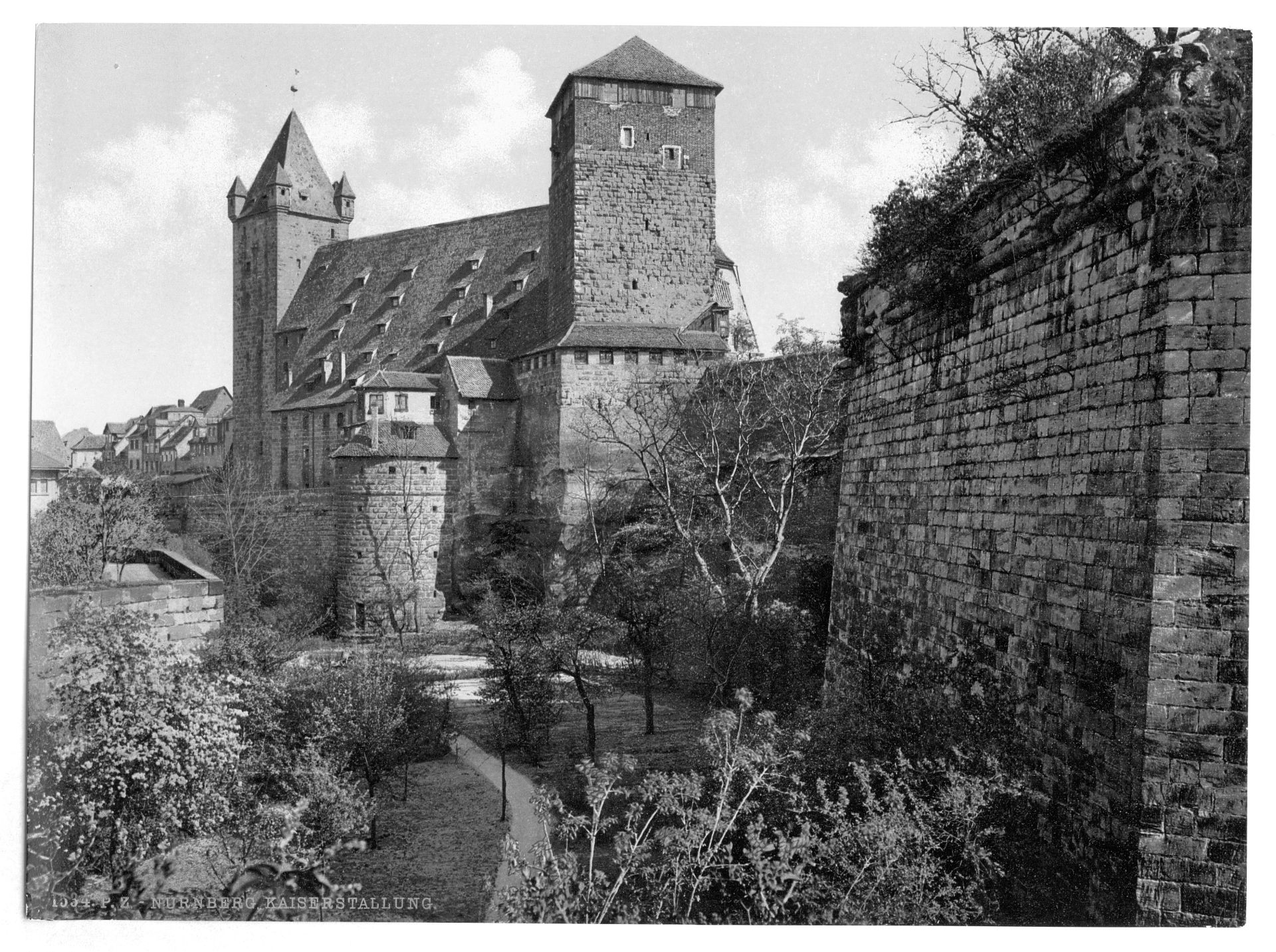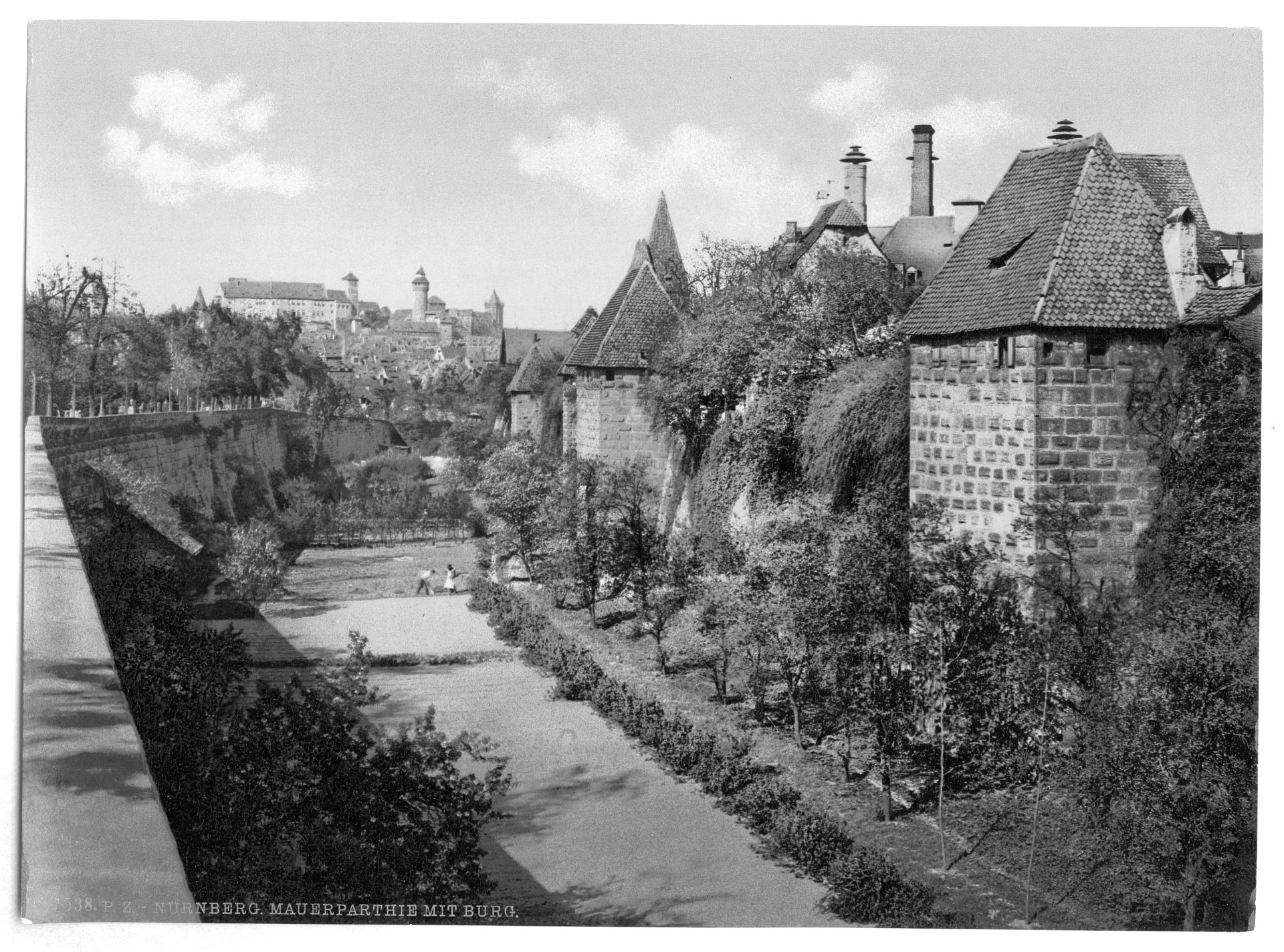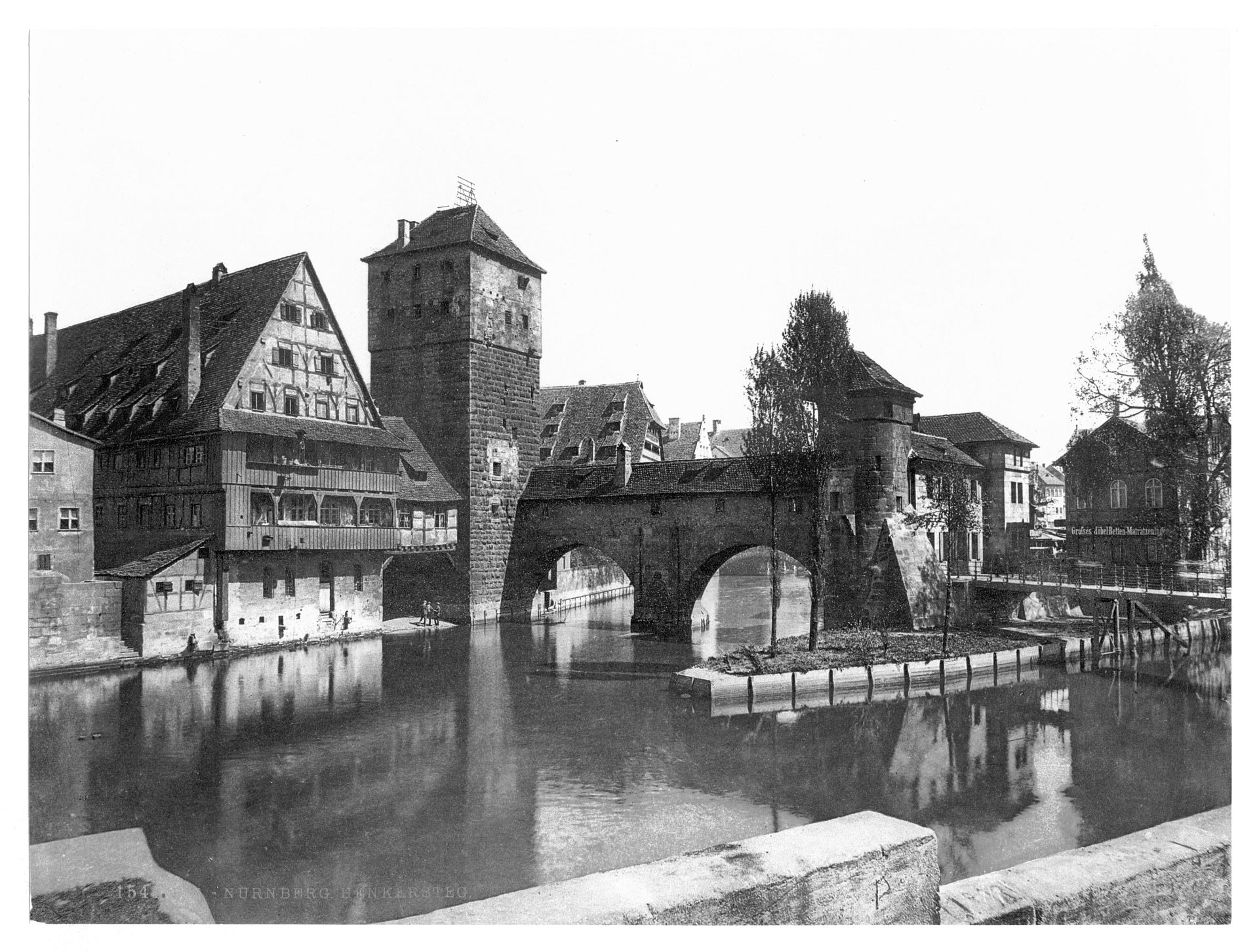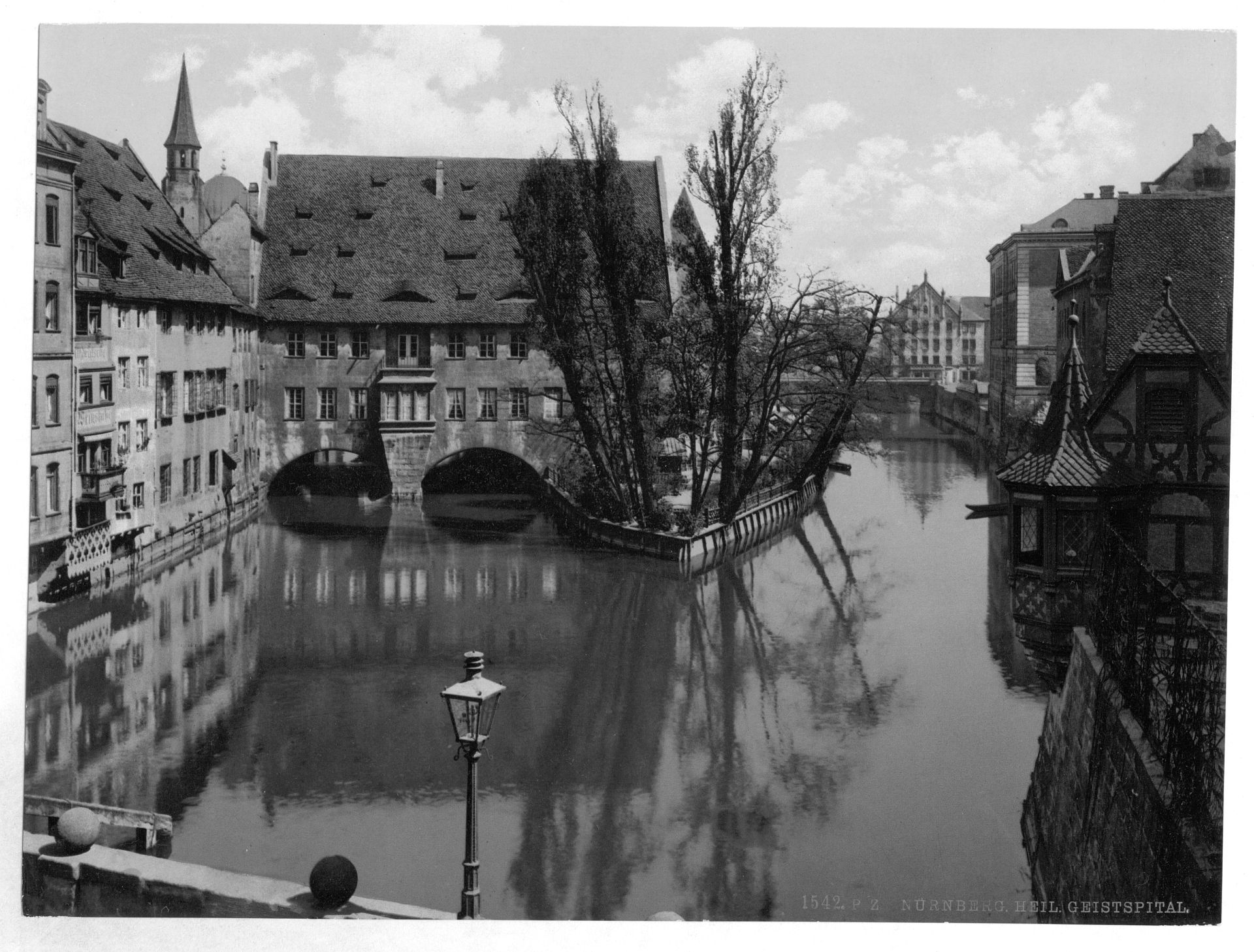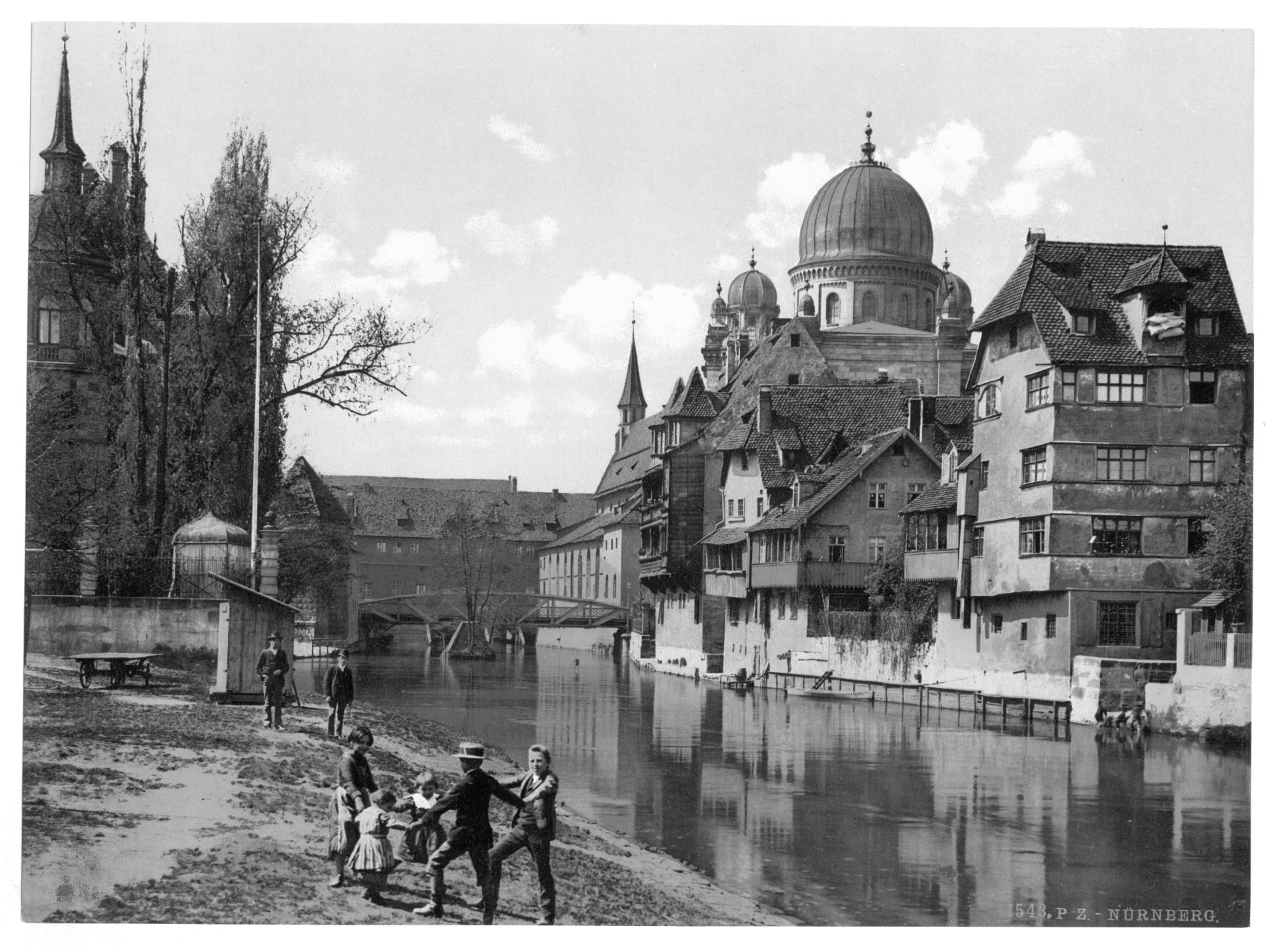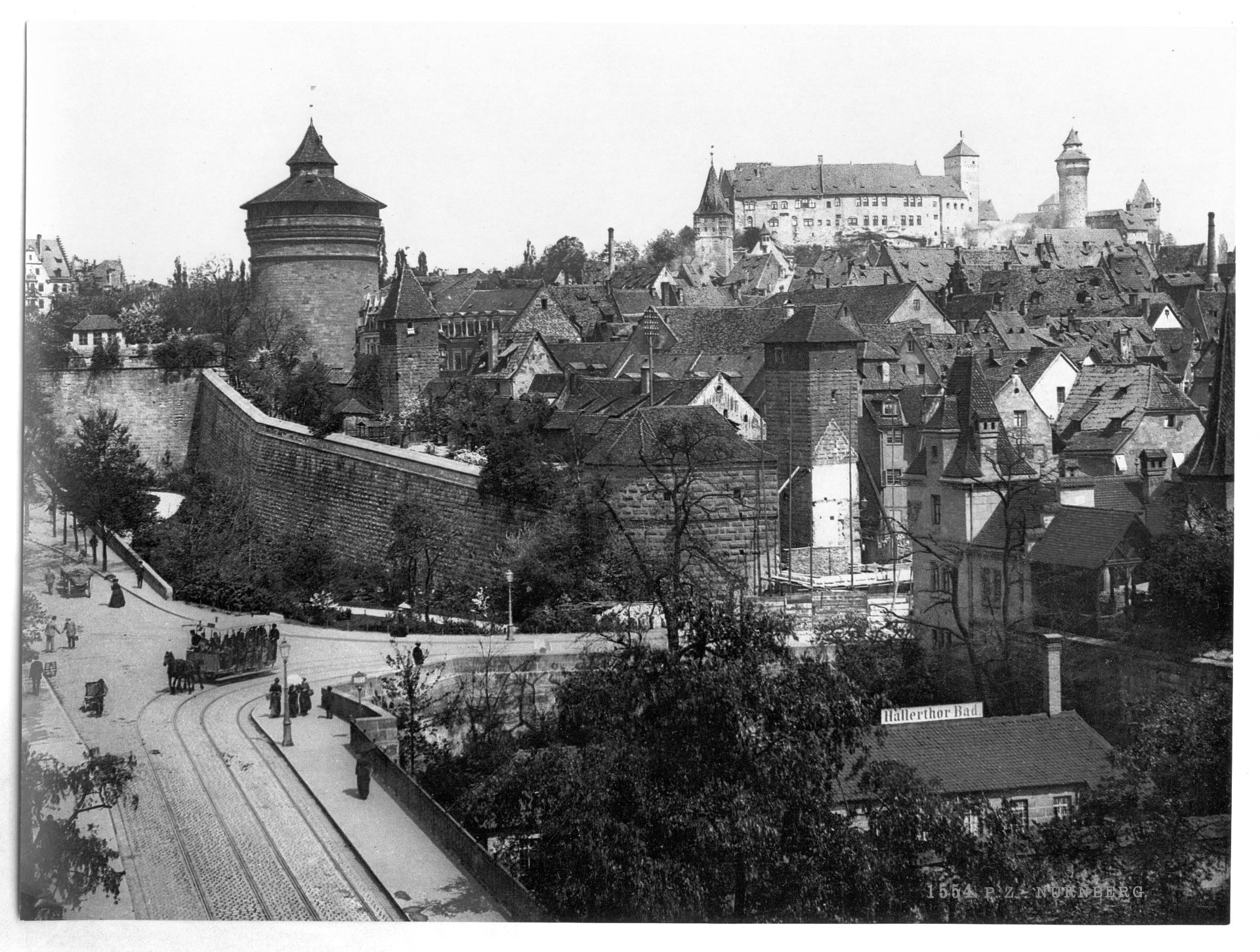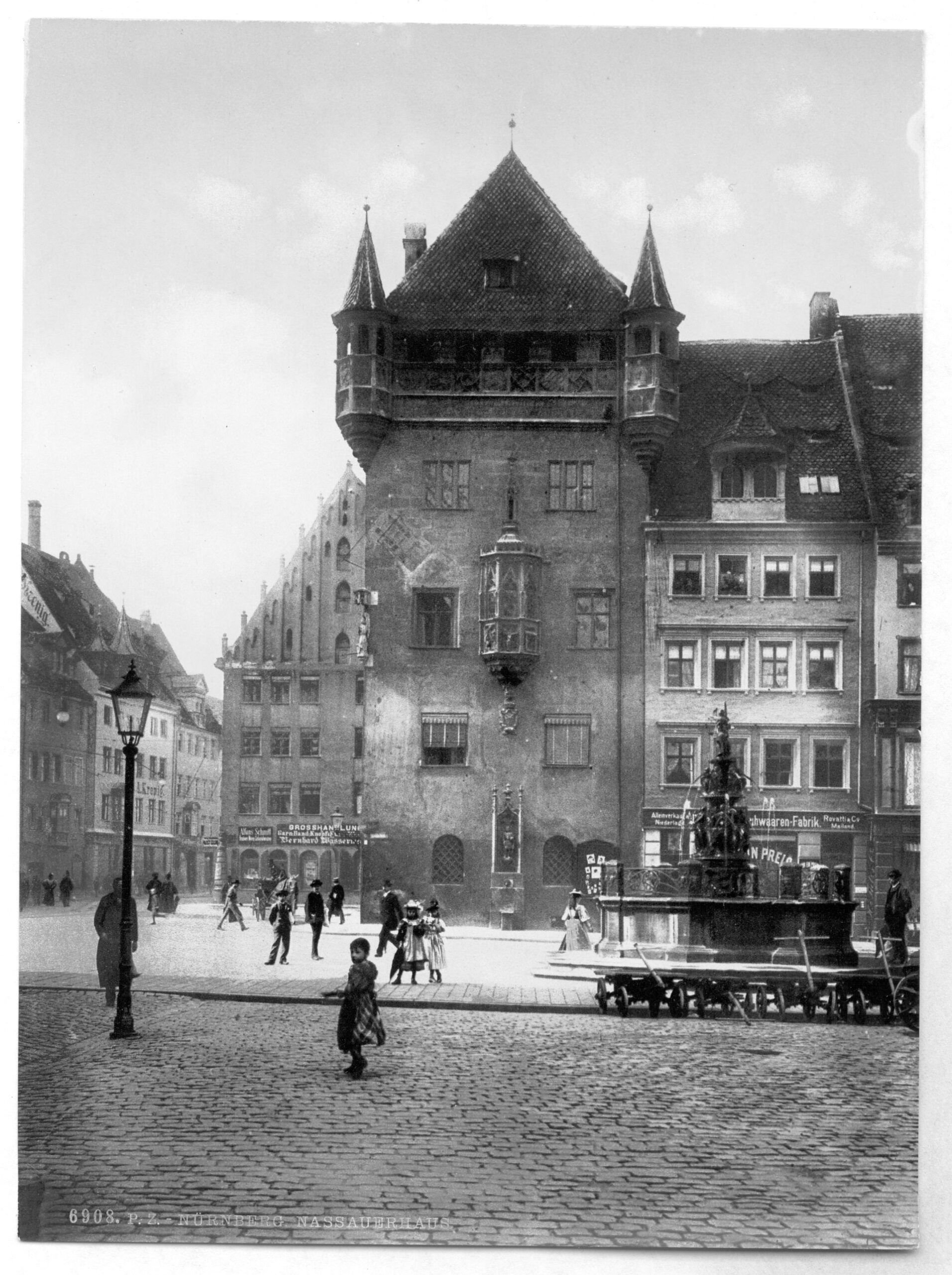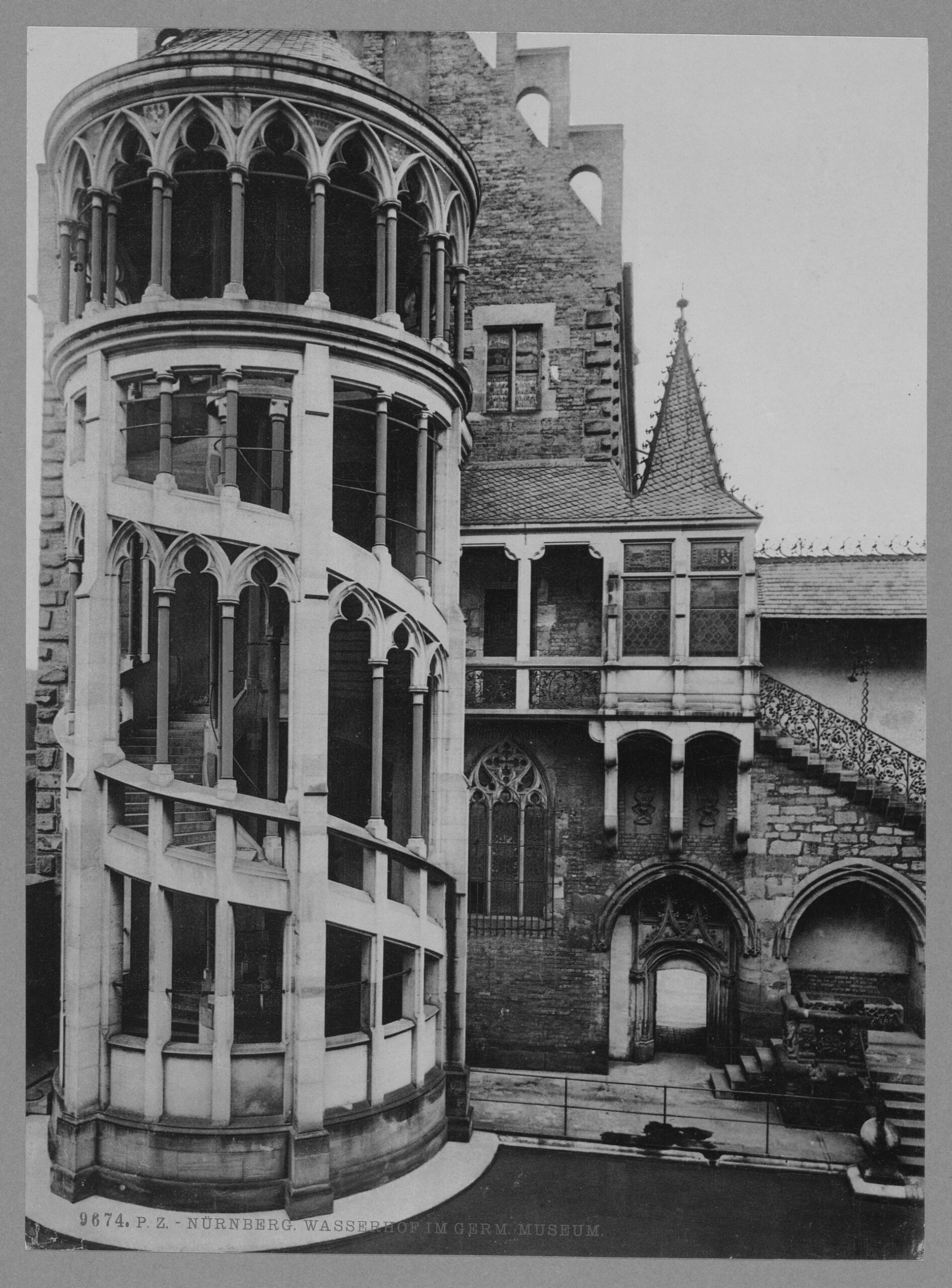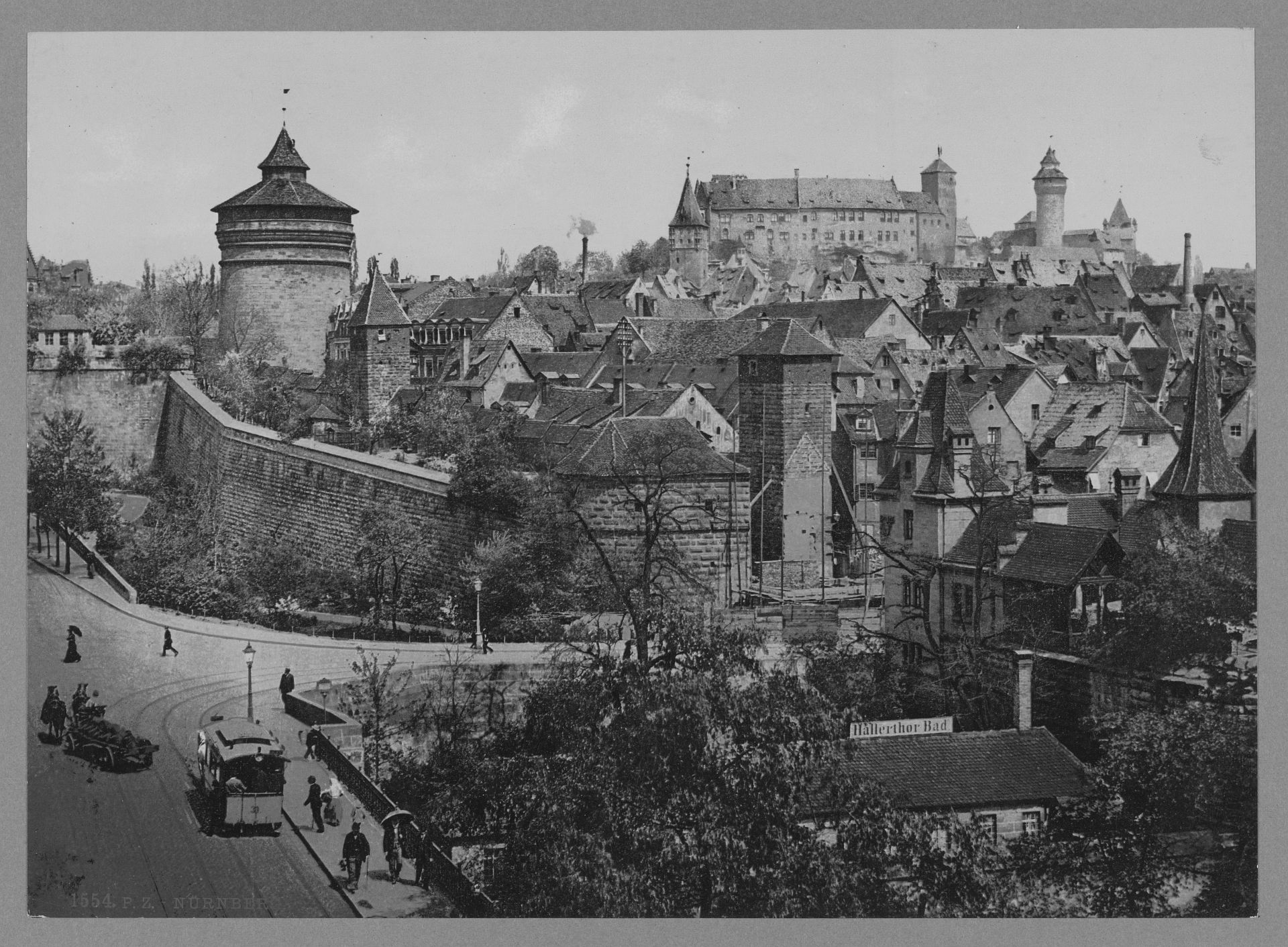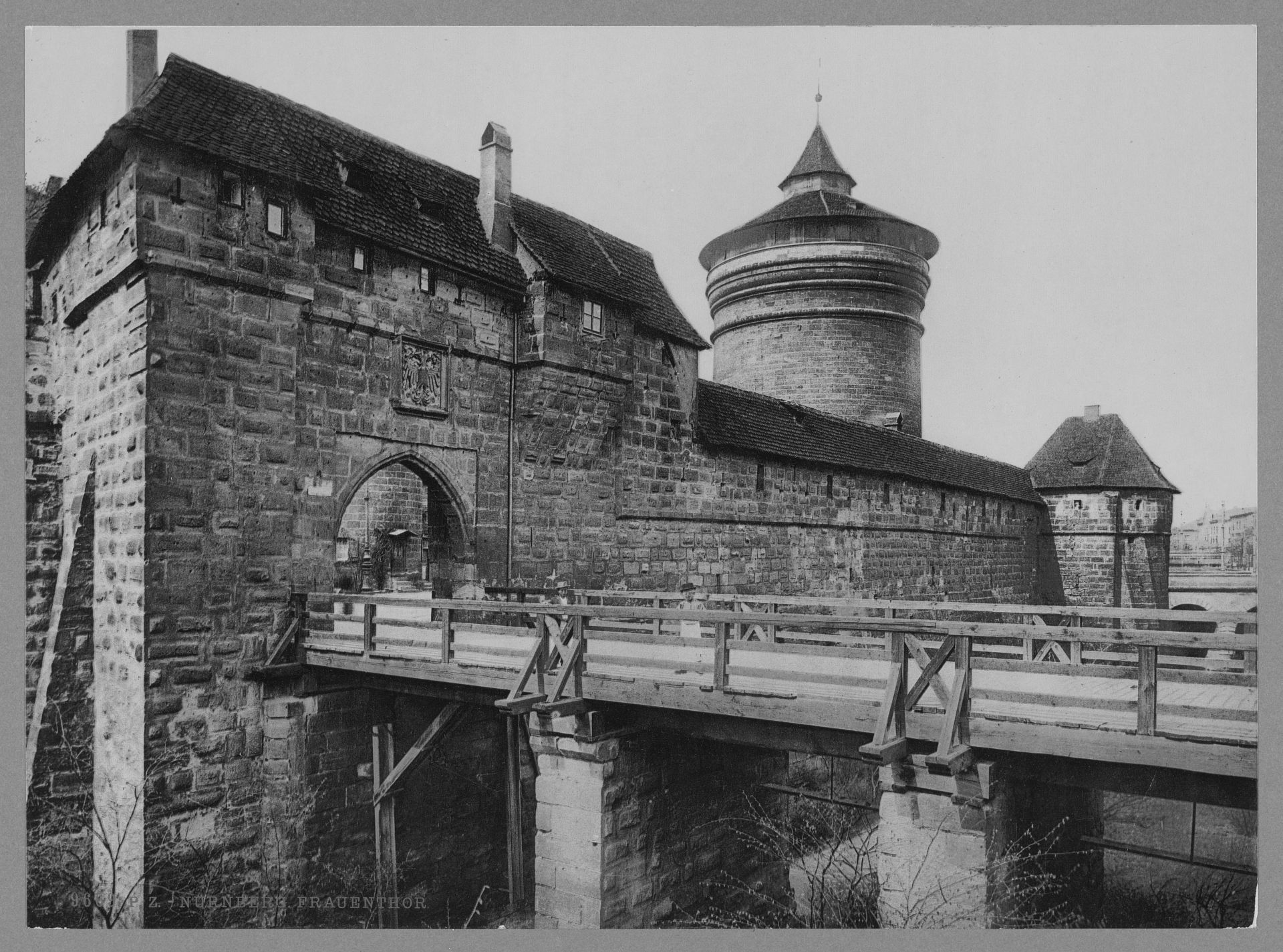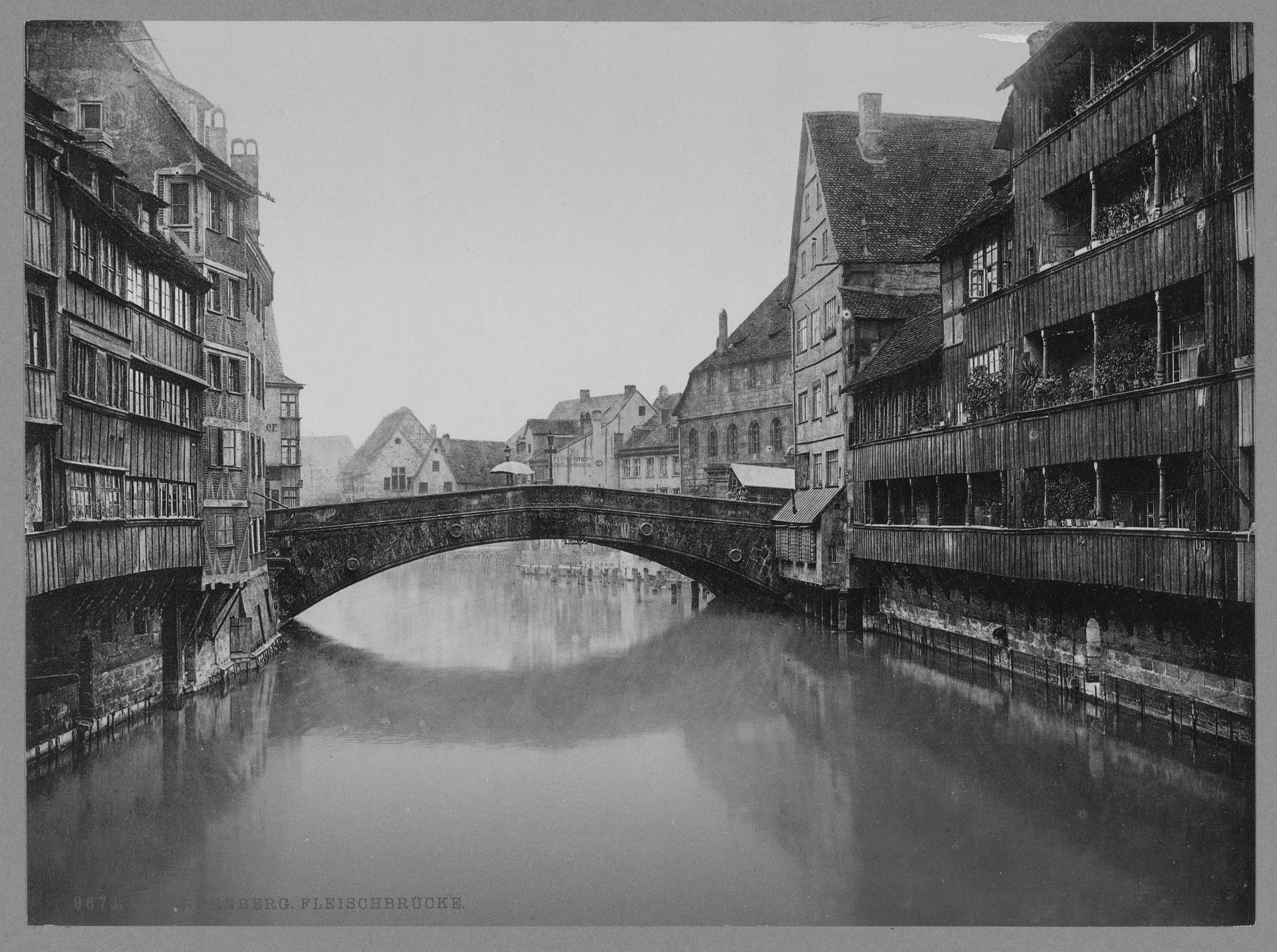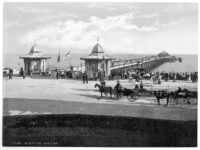After the Thirty Years’ War, Nuremberg attempted to remain detached from external affairs, but contributions were demanded for the War of the Austrian Succession and the Seven Years’ War and restrictions of imports and exports deprived the city of many markets for its manufactures. The Bavarian elector, Charles Theodore, appropriated part of the land obtained by the city during the Landshut War of Succession, to which Bavaria had maintained its claim; Prussia also claimed part of the territory. Realising its weakness, the city asked to be incorporated into Prussia but Frederick William II refused, fearing to offend Austria, Russia and France. At the Imperial diet in 1803, the independence of Nuremberg was affirmed, but on the signing of the Confederation of the Rhine on 12 July 1806, it was agreed to hand the city over to Bavaria from 8 September, with Bavaria guaranteeing the amortisation of the city’s 12.5 million guilder public debt.
After the fall of Napoleon, the city’s trade and commerce revived; the skill of its inhabitants together with its favourable situation soon made the city prosperous, particularly after its public debt had been acknowledged as a part of the Bavarian national debt. Having been incorporated into a Catholic country, the city was compelled to refrain from further discrimination against Catholics, who had been excluded from the rights of citizenship. Catholic services had been celebrated in the city by the priests of the Teutonic Order, often under great difficulties. After their possessions had been confiscated by the Bavarian government in 1806, they were given the Frauenkirche on the Market in 1809; in 1810 the first Catholic parish was established, which in 1818 numbered 1,010 souls.

